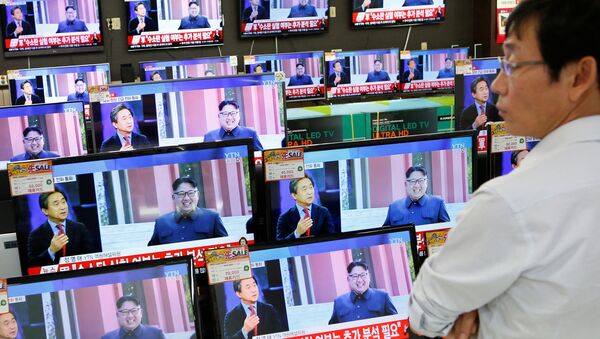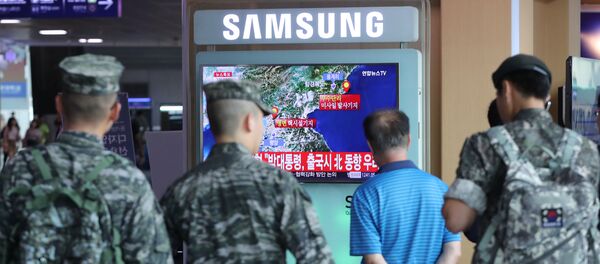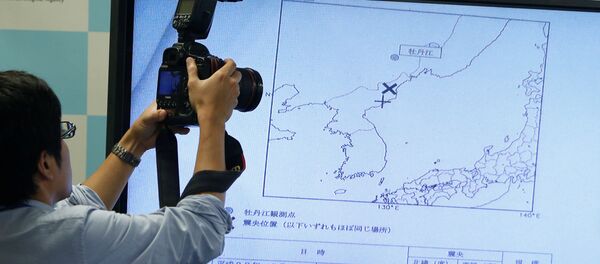According to the expert, the current developments will result in the emergence of new risks and uncertainties in Northeast Asia, especially in the geopolitical and economic spheres.
"In recent years, the situation in Northeast Asia has become more and more complicated. There are disputes about the South China Sea between China and the United States. China and South Korea, in turn, have very strained relations regarding the deployment of the US missile defense system [in South Korea]. So far we haven't found solutions to the problems that have accumulated in the relations between China and Japan. And now, in this, already tense, international situation, the DPRK has carried out its fifth nuclear test," the expert told Sputnik.
The expert noted that the current developments may lead to significant tensions between North Korea and China.
North Korea officially acknowledged that on September 9 it conducted a nuclear test, a move viewed as a provocation by its neighboring states and strongly condemned by the international community.
Since 2011, when the current country's leader Kim Jong-un came to power, North Korea has carried out more than 30 missile tests, with the country's military activities intensifying in 2016.
Zhigang believes that Friday's nuclear test could be linked to internal political difficulties in North Korea. According to him, the country faces a number of challenges: natural disasters led to a shortage of food, and international sanctions resulted in the foreign exchange deficit.
The expert also did not rule out that the nuclear test could be a kind of response to the cooperation between the United States and South Korea. He stressed that the US-South Korea military exercises could have been one of the factors that pushed the North Korean authorities to carry out the test.




